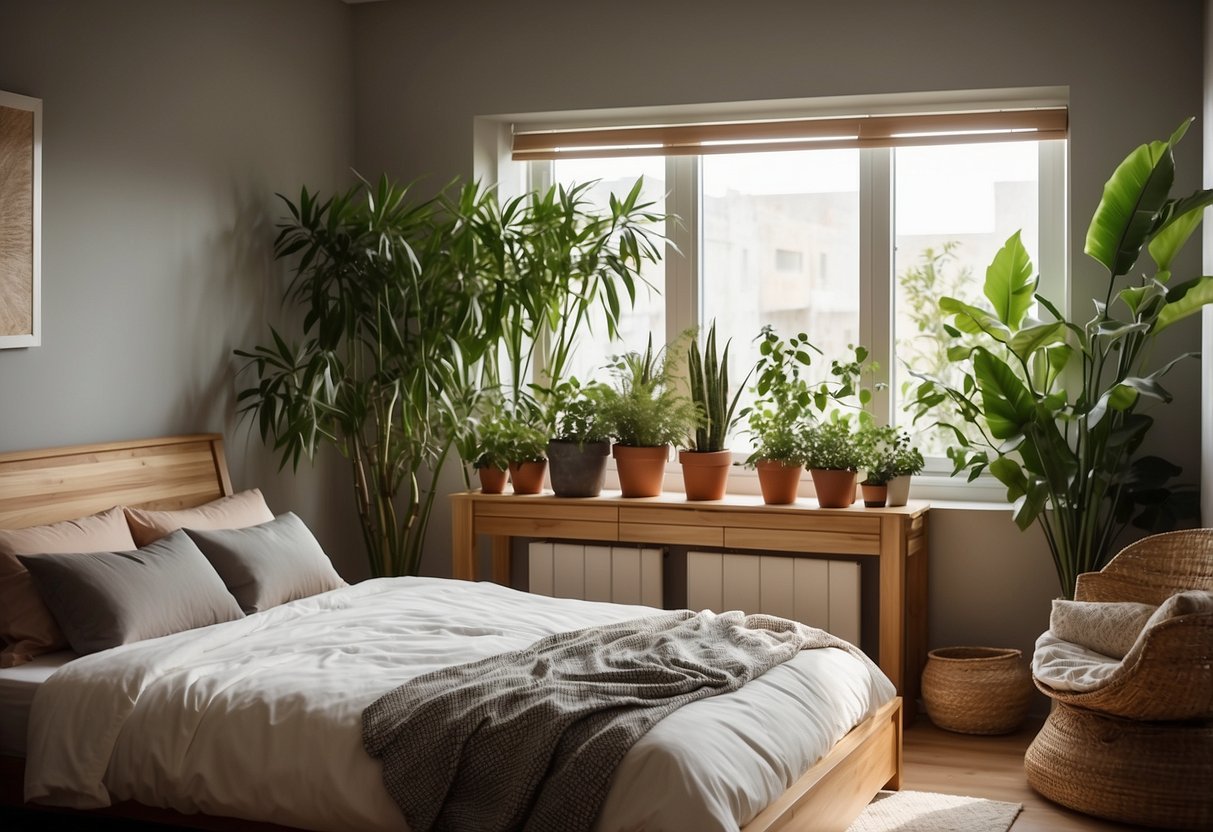Eco-Friendly Home Decor: Transform Your Space with Sustainable Style
Eco-Friendly Bedroom Designs

Creating an eco-friendly bedroom can be both stylish and sustainable by choosing eco-conscious materials for bedding and mattresses. Natural and non-toxic options help promote a healthier sleeping environment and a greener planet.
Organic Bedding Options
Selecting organic bedding is an essential step towards an eco-friendly bedroom. Organic cotton, bamboo, and linen are popular choices. These materials are grown without harmful chemicals, making them safer for both the environment and your skin.
Organic cotton is widely available and offers softness and breathability. Bamboo bedding is known for its moisture-wicking and antibacterial properties, making it ideal for those with sensitive skin. Linen, while more expensive, provides durability and becomes softer with each wash.
Look for certifications like GOTS (Global Organic Textile Standard) which ensure that the textile production meets strict environmental and social criteria. Switching to organic bedding not only reduces the chemical footprint but also supports sustainable farming practices.
Sustainable Mattress Choices
A sustainable mattress combines eco-friendly materials with comfort. Natural latex mattresses are a top choice as they are durable and made from rubber tree sap, an entirely renewable resource. They provide excellent support and have natural anti-microbial properties.
Other eco-friendly options include mattresses made from organic wool and cotton. Wool helps regulate temperature and moisture, while organic cotton ensures breathability. Hybrid mattresses that incorporate recycled steel coils with natural materials are also gaining popularity.
Certifications to look for include Global Organic Latex Standard (GOLS) and GREENGUARD, which ensure low emissions and non-toxic materials. Sustainable mattresses can be more expensive, but their longevity and health benefits make them a worthwhile investment.
Bathroom Decor and Sustainability
Creating a sustainable and stylish bathroom involves choosing materials and products that reduce environmental impact. It includes essentials like eco-friendly linens and fixtures that conserve water.
Low-Impact Linens
Low-impact linens are crucial for a sustainable bathroom. Opting for organic cotton towels and bath mats ensures that the fabric is grown without harmful pesticides. Bamboo towels, known for their quick drying and hypoallergenic properties, are another excellent option.
Hemp and linen are also strong, durable choices that are less water-intensive to produce. Choosing neutral colors or natural dyes can further reduce the environmental footprint. Look for brands committed to eco-friendly practices and certification labels like GOTS or OEKO-TEX.
Water-Saving Fixtures
Water-saving fixtures considerably reduce water usage without sacrificing performance. Installing low-flow showerheads can cut water consumption by up to 50%, while aerated faucets mix air with water, maintaining pressure while using less water.
Dual-flush toilets offer two flushing options, using only the necessary amount of water per flush. Water-efficient dishwashers and washing machines also contribute to conservation. Some fixtures come with sensors or timers to prevent unnecessary water flow. Select products certified by WaterSense or similar programs for verified savings.



